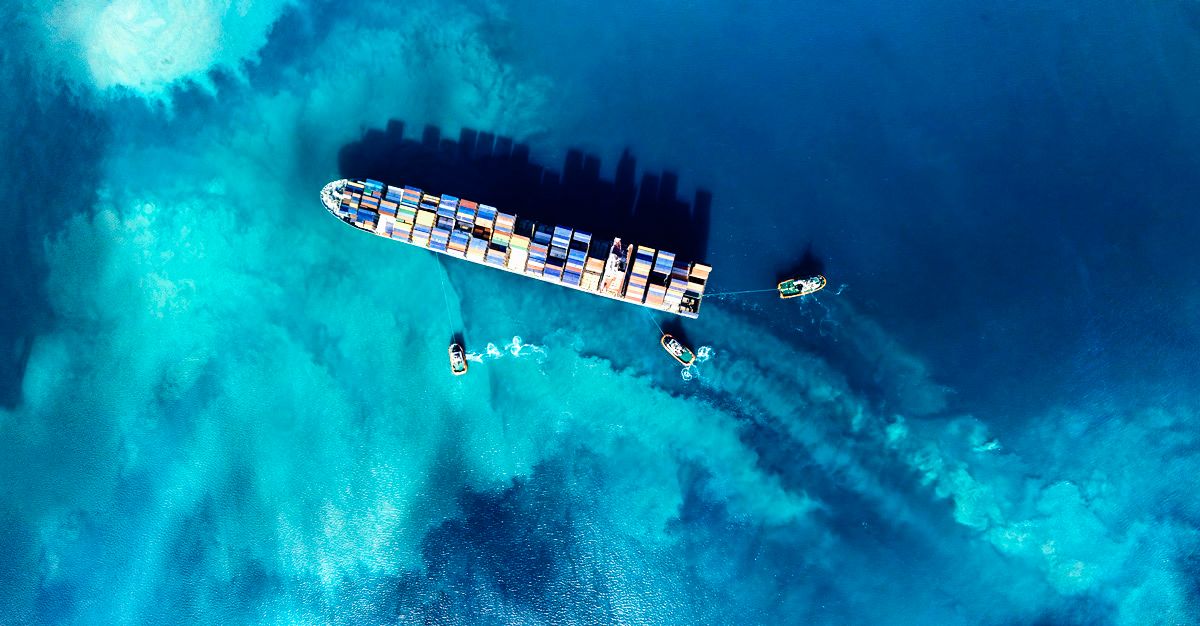Digital Transformation in Maritime Shipping Dependent on High-speed, Low-latency, Always-available Satellite Connectivity
Sumanth Dhananjaya, Senior Principal Product Manager, Maritime, Intelsat

With approximately 90% of the world’s goods transported by more than 54,000 cargo ships, the merchant shipping industry remains an integral part of a globally interconnected economy and serves as the backbone for global trade. In the past two decades, demand has consistently increased with the volume of cargo transported by ships doubling between 1990 and 2021. Future forecasts point to continued growth across the shipping and container fleet industry.
However, growth and escalating demand have not come without costs. Merchant shipping owners have been forced to confront and overcome a host of challenges including:
· Port Congestion occurs when a cargo ship cannot access a port and offload cargo in a timely fashion, resulting in diminished productivity, frustrated customers, and revenue loss.
· Rampant Labor Shortages: While shipping fleets and the number of voyages have increased, the availability of skilled and qualified maritime professionals who can fill critical roles has shrunk. Labor shortages reached a 17-year high in 2023, and future shortfalls are expected.
· Environmental Pressures: With merchant ships guzzling through approximately 300 million metric tons of fuel each year and accounting for about 3% of the world’s total greenhouse gas emissions, government regulators continue to impose new requirements, and more onerous penalties, intended to reduce the industry’s impact on the environment.
· Continuous Threats: Merchant shippers face multiple ongoing threats including physical attacks from hostile elements to state-linked cybercriminals attempting to penetrate data systems, steal sensitive information, and disrupt the global supply chain.
· Aging Fleets: Most commercial cargo ships at sea today have been in operation for more than 20 years and are increasingly costly to maintain and more susceptible to breakdowns and failures that can cripple business operations and reputation.
To navigate these pervasive challenges, merchant shipping companies are more readily tapping into new technologies and deploying a range of purpose-built industry digital solutions across their business operations and fleets of cargo ships. These data-driven connected applications enable fleet owners and ship operators to:
· Enhance Route Planning: Intelligent planning and routing can maximize and optimize fuel usage, avoid weather and hostile areas, and ultimately reduce time at sea, all of which save money and lead to more efficient overall operations.
· Comply with Standards: Applications that track emissions and monitor fuel efficiency can accelerate decarbonization efforts in the maritime shipping industry and help operators remain in good standing with regulatory authorities, governmental bodies, and climate activist organizations.
· Maintain The Fleet: By capturing, transmitting, and analyzing ship performance data while the vessel is out at sea, maintenance crews on shore can more easily identify and address potential issues, preempting larger problems that could potentially remove a vessel from service and cause delivery backlogs.
· Enhance Crew Welfare: With competition for skilled workers intensifying, shipping companies need to provide crews with premium connectivity for accessing entertainment and remaining in contact with friends and loved ones back home.
Satellite Connectivity the Backbone of Maritime Digital Adoption
Data-driven digital solutions and connected applications have the potential to dramatically enhance any shipping operator’s business and accelerate revenue growth. However, the ability for these solutions to function and deliver value as intended is dependent on access to robust, enterprise-grade connectivity that is present and available no matter where a cargo ship’s voyage may lead. As applications, solutions, and platforms become more commonly used, transmitting greater volumes of data, demand for ubiquitous and resilient connectivity that only satellite-powered solutions can deliver will accelerate.
FlexMaritime Portfolio of Solutions Powering Maritime Shipping’s Digital Age
Intelsat’s FlexMaritime portfolio of solutions is designed to meet the communications and connectivity needs of the merchant shipping industry. With FlexMaritime’s variety of reliable and secure global network services, maritime vessel owners and operators can have flexible satellite-powered connectivity solutions to address the connectivity needs of today and tomorrow.
Intelsat’s portfolio of services purpose-built for merchant ship owners and operators includes FlexMaritime, FlexMaritime Vantage, and FlexMaritime LEO.
FlexMaritime, Intelsat’s award-winning flagship global maritime connectivity service, delivers enterprise-grade and robust coverage that ensures ships at sea are always connected. A global, fully managed connectivity solution, FlexMaritime enables reliable, high-throughput connectivity everywhere at sea, ensuring consistent, high-performing ship-to-shore and shore-to-ship communications for merchant ships and their crews. FlexMaritime is also designed to help ship operators comply with always-evolving sustainability and emissions-reducing requirements.
For vessel operators with greater bandwidth needs, FlexMaritime Vantage offers an additional layer of higher speed coverage in high-traffic areas as a complement to the core FlexMaritime service. With FlexMaritime Vantage, ship operators can access the connectivity speeds required to support any number of real-time, data-hungry applications including those used for predictive maintenance, emissions tracking, and real-time route optimization. By integrating FlexMaritime Vantage with FlexMaritime, merchant ships can have the situational awareness needed to avoid bottlenecks and downtime while providing crews with enhanced onboard connectivity experiences, as well as remote training, health and safety services, and education.
Finally, FlexMaritime LEO introduces low Earth orbit connectivity to Intelsat’s portfolio of maritime shipping solutions. Designed for ship operators using applications that require ultra-require high speeds combined with ultra-low latency, FlexMaritime LEO combines the coverage and strength of geostationary satellite with the robust low latency of LEO to power remote or autonomous operations. FlexMaritime LEO delivers another layer of reliability, scalability, speed, coverage, and security, enabling ships to stay connected everywhere at sea, including within the busiest shipping routes.
In the coming years, ports and shipping routes are expected to become congested, environmental compliance requirements more numerous, and labor shortages more pronounced. Merchant shipping operators that deploy satellite-powered connectivity services across their fleets, like Intelsat’s portfolio of FlexMaritime solutions, can leverage today’s maritime digital solutions to improve the efficiency of operations and accelerate revenue growth.



